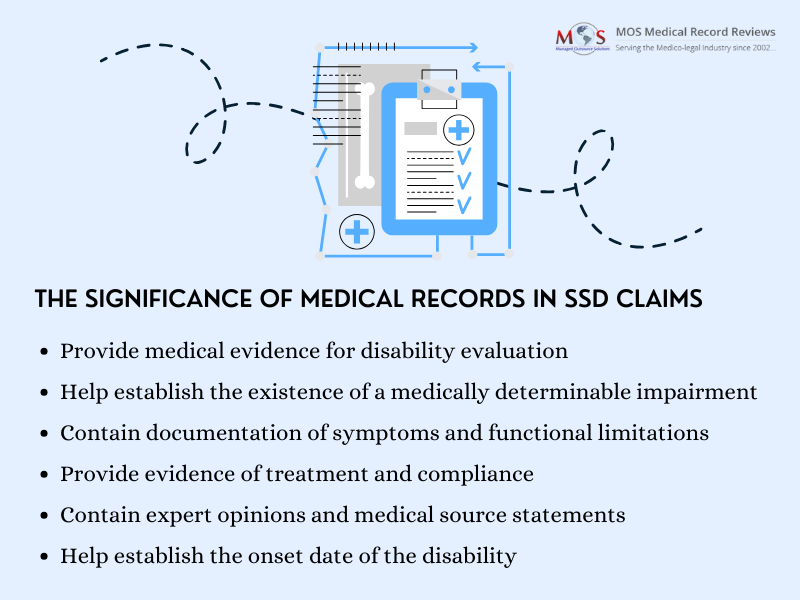Medical records play a crucial role in the Social Security Disability (SSD) application process, serving as a key component in determining eligibility and the level of disability benefits. To be eligible for disability benefits based on pain, the applicant must furnish evidence related to the medical condition responsible for the pain.
Attorneys representing individuals with chronic pain conditions utilize medical review solutions to gain a comprehensive understanding of the specific underlying medical issues. This understanding is crucial in assessing the validity of the claim and in preparing a robust case, should the claim be denied. On the claimant’s part, the focus should be on locating a doctor well-versed in the nature and consequences of chronic pain. Only with a thorough diagnosis from such a medical professional and compelling evidence of treatment can the claimant anticipate the approval of Social Security Disability (SSD) benefits.
Related blogs:
Why Social Security Disability Claims Are Denied
6 Ways to Avoid Fraudulent Social Security Disability Claims
Understanding the Role of Medical Records in SSDI Claim Processing
Here’s a breakdown of the importance of medical records in the context of Social Security Disability:
- Medical evidence for disability evaluation: Medical records provide substantial evidence of an individual’s medical condition and its impact on his or her ability to work. The SSA relies heavily on these records to assess the severity of impairments and their impact on daily activities and work-related functions.
- Prove the existence of a medically determinable impairment: To qualify for SSDI benefits, one must have a medically determinable impairment that meets the criteria set by the SSA. Medical records, including diagnoses, treatment plans, and test results, are crucial in establishing the existence and severity of such impairments.
- Documentation of symptoms and functional limitations: Medical records document the symptoms experienced by the individual and the functional limitations caused by their medical condition. This information is essential for the SSA to evaluate whether these limitations prevent the person from engaging in substantial gainful activity (SGA).
- Provide a detailed view of the claimant’s medical history: Consistent and detailed medical records provide a comprehensive view of the individual’s medical history and the progression of their condition over time. This consistency adds credibility to the disability claim and supports the assertion that the impairment is ongoing and severe.
- Evidence of treatment and compliance: The SSA considers whether the individual has been actively seeking and following prescribed medical treatment. Medical records that demonstrate a history of treatment, medication adherence, and compliance with healthcare recommendations strengthen the case for disability benefits.
- Expert opinions and medical source statements: Medical records often include opinions and statements from treating physicians and medical professionals regarding the individual’s functional limitations and ability to work. These expert opinions can carry significant weight in the disability determination process.
- Supporting disability onset date: Accurate and detailed medical records help establish the onset of the disability, which is crucial for determining when the individual became unable to engage in substantial gainful activity due to their impairment.
- Appeals and administrative hearings: In cases where initial disability claims are denied, medical records become vital during the appeals process. They serve as the foundation for presenting additional evidence and supporting the individual’s case during administrative hearings.
In summary, comprehensive and well-documented medical records are fundamental in establishing the medical basis for Social Security Disability claims. These records provide the SSA with the necessary information to evaluate the severity of impairments and make informed decisions regarding eligibility for disability benefits.
Benefit from our reliable medical record review services for Social Security Disability firms





